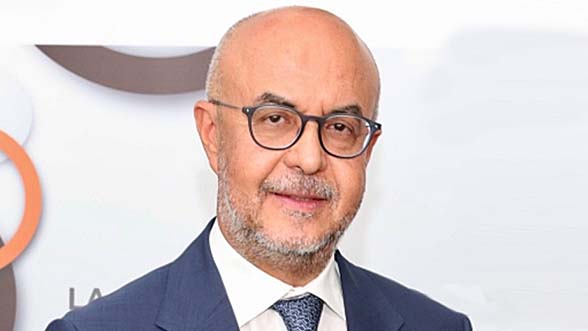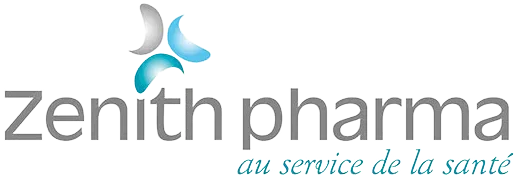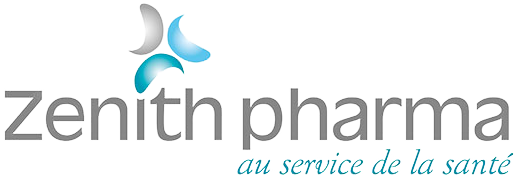
Zenith Pharma's Mohamed El Bouhmadi discusses the company's approach to product development and the potential for Morocco to become an African pharmaceutical export platform. As Morocco transitions to universal healthcare coverage, he highlights the need for balanced medication pricing. With a robust growth trajectory and a focus on high-value products, Zenith Pharma aims to provide tailored solutions for Moroccan patients, including innovative biologics.
Can you provide our international audience with an overview of Zenith Pharma?
Right from the onset, our goal was twofold: to develop Moroccan products and to adopt a mixed model that included innovative products under license. We work with various international partners to explore product development opportunities adapted to our market. In certain instances, we encountered formulations that were no longer prioritised by the license holders. In these cases, we took the initiative to develop them, validate new formulations and then return the dossier to our partners who retained ownership. These products were then entrusted to us for distribution in Africa. Today, our business is made up of about 60 percent of licensed products, including a large number that are manufactured by us.
Zenith Pharma launched a complete range of ophthalmology products, from our partner Bausch & Lomb, addressing the needs of the Moroccan market. Subsequently, we expanded our portfolio to encompass products for mothers and children. In collaboration with our French partners, Gilbert, we offer a range of cosmetic and pharmaceutical products for babies. Our interest then extended to women’s health, followed by a broader focus on gynaecology, urology, cardiology, the central nervous system, and oncology. Today, we are one of the leading companies in the field of oncology.
We were the first laboratory to ensure bioequivalences for all our products, and we collaborate closely with the Moroccan equivalence centre, as well as foreign centres.
We set up a manufacturing facility, a significant investment that involved equipping it with European-made machinery. Subsequently, we built a large warehouse, one of the largest in Morocco, with a storage capacity of 8,400 pallet locations. The entire facility is fully air-conditioned, with precise temperature and humidity control.
Presently, we are also actively engaged in decarbonisation initiatives, aligned with our commitment to clean energy. We have plans to install solar panels to ensure that at least 70 percent of our facility’s energy needs are met through solar power. Furthermore, we are dedicated to optimising water usage.
We also take responsible waste management seriously, with none of our waste disposed of in natural surroundings. We have retention basins in place to ensure that all waste, whether it be liquid or in powder form, be treated.
Could you share some of the industry’s recent challenges in Morocco? What initiatives are underway to address these?
Just like everywhere else in the world, the post-COVID-19 period had a significant impact on our supply chain, leading to increased prices from suppliers. This put immense pressure on our production costs, as raw materials, packaging materials, and various product components were subject to price hikes. We also faced shortages of some materials, including glass containers. Additionally, we had to help our employees in terms of salary to lessen the impact of inflation on their quality of life. All of these factors contributed to an increase in our production costs, thereby wearing away at our profit margins.
In our industry, pharmaceutical prices are regulated and tend to decrease, especially when benchmarked against prices in 6 different countries as well as the country of origin.
At Zenith Pharma, a Business Continuity Management Committee was set up to manage the crisis. They formulated certain recommendations that needed to be followed up on, including stock management, validation of alternative sources of supply, etc.
Moreover, to address these issues, a committee was formed at the ministerial level to work on products facing shortages and manage their pricing. The goal was to ensure the supply of essential products for public health, even if they were no longer highly profitable. Through inter-ministerial discussions, we devised special pricing mechanisms to prevent these products from disappearing from the market. The alternative would be to introduce more expensive patented products with equivalent efficacy, which would strain our healthcare system.
Our objective is to strike a balance between the need for innovative products and for economically sustainable basic products to maintain and ensure the sustainability of our system of generalised medical coverage.
How do you assess Morocco’s potential to become an export platform for Africa?
The idea is to create an export platform based in Morocco to enhance national sovereignty and facilitate the flow of products to other African countries.
Developing this platform involves working on certain regulatory aspects. The structure could include a consortium of pharma companies, combining both public and private sectors, and possibly take the form of a public-private partnership. This platform would facilitate product exports to Africa, increasing export volumes and local production to revitalize the pharmaceutical industry. This vision aligns with the evolving Moroccan market, which is gradually expanding and currently valued at approximately EUR 1.7 billion.
Currently, pharmaceutical prices remain uniform for both domestic and export markets in Morocco. Ideally, there should be differentiated pricing for exports, along with the flexibility to export products without the requirement of domestic commercialisation and with dedicated export pricing.
This approach has several advantages. For instance, it allows us to manufacture a product specifically for a particular country’s needs. Furthermore, establishing a platform for export facilitation would not only open up opportunities for Morocco but also encourage other countries to send their products here for export.
Additionally, such a strategy, in my opinion, would enable the development of Morocco’s pharmaceutical industry in its globality to achieve national healthcare sovereignty.
Another option would be contract manufacturing as local manufacturing could also meet the needs of European or American pharmaceutical products. For instance, manufacturing small batches of certain products for export without the need for domestic commercialisation could be highly advantageous.
In addition, Morocco, through the Fédération Marocaine de L’Industrie et de l’Innovation which I chair, is working to encourage technology transfer and promote South-South cooperation. As you know, Africa currently produces less than 2 percent of its pharmaceutical products, despite significant demand.
How has the pharmaceutical industry experienced the transition towards the widespread implementation of universal healthcare coverage, and what opportunities do you foresee arising from this substantial milestone?
Universal social healthcare coverage is an advancement for our country in terms of social progress, especially if you consider that there were parts of the population with no access to medical consultations or medications, who lacked the purchasing power to afford them. Some individuals with chronic or acute medical conditions who are paid on a weekly basis could not access treatments. Many people could not afford treatment for general medical issues, such as dental care, or radiology.
Moroccan citizens are beginning to gain this access, but we have not yet seen a significant impact because Moroccan patients are not yet aware of the coverage they have been granted by the Moroccan state.
The government is actively promoting this advancement and the system is becoming more digitised. Patients will be able to create shared electronic records and visit pharmacies to retrieve their medications, with the option for third-party billing.
It is a change in behaviour and mindset. The system is functioning well for more serious medical conditions and for fast reimbursement processes. However, when it comes to minor health issues, people have not fully embraced the concept yet. Personally, I am convinced that this will have a significant impact on the pharmaceutical market because it essentially adds 22 million patients to the system, which is substantial. That is why we have consistently aimed to be involved in the decision-making process with regulatory bodies so that we can prepare accordingly.
However, we should not assume that medications, as it is often said, are the main component that will ensure the sustainability of the system for 100 percent coverage. Medications account for approximately 28 percent of the healthcare expenditure, but there are other expenses to consider. Therefore, we should not solely focus on reducing the price of medications to the maximum extent. By doing so, we might end up with cheap products that are no longer available in the market, which would result in shortages. Hence, we need a balanced approach within the system that would allow for reasonable medication prices while ensuring the long-term sustainability of the social security system.
How do you see the possibility of foreign companies relocating their production to Morocco?
It could be an interesting opportunity. I have had several American pharmaceutical companies reach out to me for contract manufacturing, either because they want products manufactured for shipment to the United States and Canada, or as a platform for Africa. While it involves lengthy regulatory processes, it is a real opportunity for us. Morocco can manufacture for Europe under stringent environmental standards and specific guidelines. What we do not want is for Morocco to become a dumping ground for factories that pollute, or that are environmentally unfriendly.
What are some of the the key avenues Zenith Pharma intends to explore moving forward?
Our company is experiencing the most robust growth in the Moroccan market and we consistently achieve twice the market growth rate.
Our organisational structure is also well-established, as we operate in business units, which proves to be highly efficient. Moreover, our distribution system is impeccable, as we directly deliver to the customers, something not all pharmaceutical companies do. We maintain our own fleet of logistics trucks, ensuring quality control all the way from the factory to the customer. We also handle distribution for other pharmaceutical companies. This means we have a well-organised structure capable of accommodating a wide range of activities, whether they be in manufacturing or distribution.
In my view, the future lies in focusing on products with high therapeutic and economic value. We aim to provide tailored solutions to our Moroccan patients, ensuring they have access to the most appropriate treatments while also being prepared to offer innovative products. We are continually working on developing our portfolio further.
Looking ahead, our goal is to expand our presence in the African export market, which presents ample opportunities to offer innovative products, biosimilars, and biological products. The future of pharmaceuticals is moving towards biologics, and we are at the forefront of this transition. We are currently in the preliminary stages of plant-based treatments, using plants as sources of raw materials for active chemical compounds.
This shift will enable us to develop targeted therapies and customise treatments for individual patients, moving away from one-size-fits-all approaches.
What values do you aim to convey when it comes to building trust with the company’s numerous partners?
Another emblematic aspect of our company is represented by the three petals that symbolise our three core values: openness, audacity, and sincerity. When it comes to our partners, trust is paramount.
When we engage with our partners, we prioritize transparency, sharing openly with one another. This honesty is crucial to me. If you consistently deliver on your commitments and uphold the trust people place in you, that is the path to success.
Our company has established its presence in the Moroccan market through its unwavering commitment to professionalism and precision. The image we project is one of trustworthiness, and we have consistently maintained the highest standards of product quality.
Source : pharmaboardroom.com


